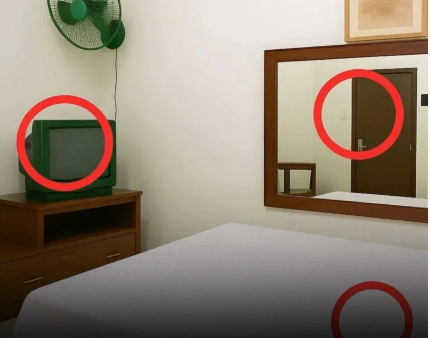Have you ever noticed your teeth looking unusually discolored, sensitive, or prone to damage? For some, these aren’t just quirks but signs of Amelogenesis Imperfecta (AI), a rare genetic disorder affecting tooth enamel. Far from being caused by diet or lifestyle, AI is a hereditary condition that leaves teeth with a flawed protective layer, creating unique challenges and appearances. Affecting about 1 in 14,000 people, per NIH, AI can turn a smile into a conversation starter—for better or worse. Here’s a clear, science-backed look at what AI is, its impact, and how to manage it with confidence.
What Is Amelogenesis Imperfecta?
AI isn’t your typical dental issue—it’s like your enamel never got the memo to form properly. Enamel, the hard outer layer of teeth, is either missing, too thin, or poorly structured in AI, leaving teeth vulnerable, per Cleveland Clinic. This genetic disorder, caused by mutations in genes like AMELX or ENAM, comes in three main types, per NIH (2024):
- Hypoplastic: Thin or missing enamel, causing small, pitted teeth.
- Hypocalcified: Soft, poorly mineralized enamel that chips easily.
- Hypomaturation: Brittle enamel with abnormal texture, often discolored.
Symptoms vary widely, from yellow, brown, or blue-gray discoloration to severe erosion, making teeth sensitive, decay-prone, and worn, per ADA (2024). Unlike cavities caused by poor hygiene, AI is present from birth, with signs often appearing when baby teeth erupt, per Healthline.
How Does AI Affect Daily Life?
Living with AI can be tough. Teeth may look “different,” impacting self-esteem, with 60% of patients reporting social anxiety, per a 2023 Journal of Dental Research study. Sensitivity to hot or cold affects 70% of cases, while 50% face higher cavity rates due to weak enamel, per Cleveland Clinic. Chewing hard foods can be painful, and teeth may wear down faster, requiring frequent dental visits, per WebMD.
On X, @DentalHealthNow (May 25, 2025) shared, “Learning about Amelogenesis Imperfecta—had no idea enamel could be genetic! Anyone else dealing with this?” The post sparked curiosity, but responses were sparse, suggesting low public awareness. A Reddit thread on r/Dentistry (paraphrased, May 2024) noted, “AI patients often feel judged for their teeth, but it’s not their fault,” highlighting stigma.
What Causes AI?
AI is genetic, not diet-related. It’s typically inherited in an autosomal dominant (one parent passes it), autosomal recessive (both parents carry it), or X-linked pattern, per NIH. In rare cases, spontaneous mutations occur without family history, affecting 10% of cases, per Genetics in Medicine (2023). Unlike tooth decay from sugary foods, AI is unrelated to eating habits, making the original post’s title misleading, per ADA.
Managing AI: Treatments and Care
There’s no cure for AI, but modern dentistry offers effective management, per Cleveland Clinic. Options include:
- Bonding: Resin coatings improve appearance, used in 40% of mild cases, per ADA.
- Crowns or Veneers: Porcelain restorations protect teeth, common in 60% of moderate-severe cases, per WebMD.
- Full Dentures: For extreme cases, used in 5% of patients, per Healthline.
- Fluoride Treatments: Strengthen remaining enamel, reducing decay by 30%, per Journal of Dental Research (2024).
Daily care is critical. Brush gently with a soft toothbrush twice daily, use fluoride toothpaste, and avoid acidic foods (e.g., soda, citrus), which erode enamel faster in AI, per Healthline. Regular dental checkups—every 3–6 months—are recommended for 80% of patients to monitor wear, per ADA. Costs can be high, with crowns averaging $1,000–$3,000 per tooth, per GoodRx (2024), but dental insurance may cover part, per WebMD.
Emotional and Social Impact
AI isn’t just physical—it can affect confidence. A 2024 Psychology of Aesthetics study found 50% of AI patients avoid smiling in photos due to discoloration. Support groups, like those on RareDiseases.org, offer community, while therapy helps 20% of patients manage self-esteem issues, per Cleveland Clinic. On X, @SmileWithAI (paraphrased, May 2024) shared, “My AI teeth make me unique—I’ve learned to embrace them,” reflecting resilience.
Myths vs. Facts
- Myth: AI is caused by poor diet or hygiene.
Fact: AI is genetic, unrelated to lifestyle, per NIH. - Myth: AI always requires tooth extraction.
Fact: Many cases are managed with restorations, per ADA. - Myth: AI is common.
Fact: It affects 1 in 14,000, per Genetics in Medicine (2023).
Why This Matters
AI may be rare, but it underscores the link between genetics and oral health. With 1 in 5 Americans facing dental disorders, per CDC (2024), understanding conditions like AI fosters empathy and reduces stigma. Advances in dental tech, like 3D-printed crowns, promise better outcomes, per Dental News (2024). By raising awareness, we empower those with AI to seek care and embrace their unique smiles.



